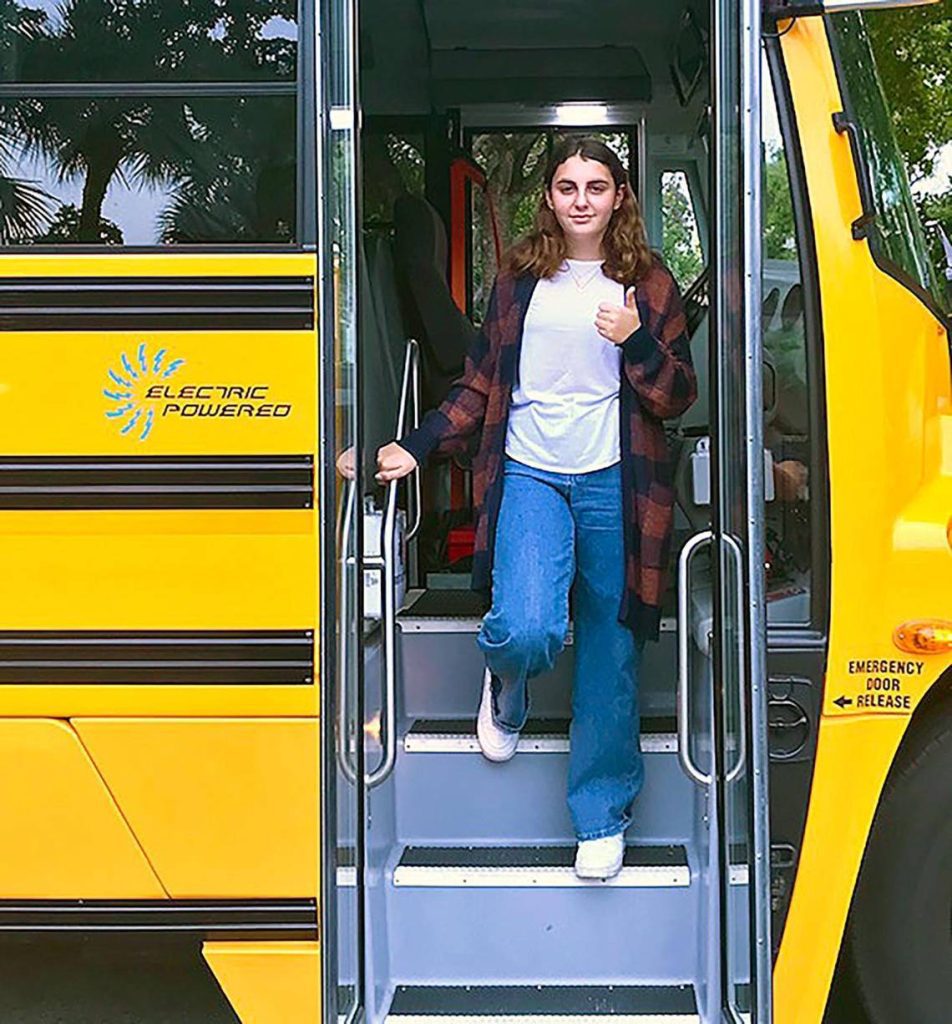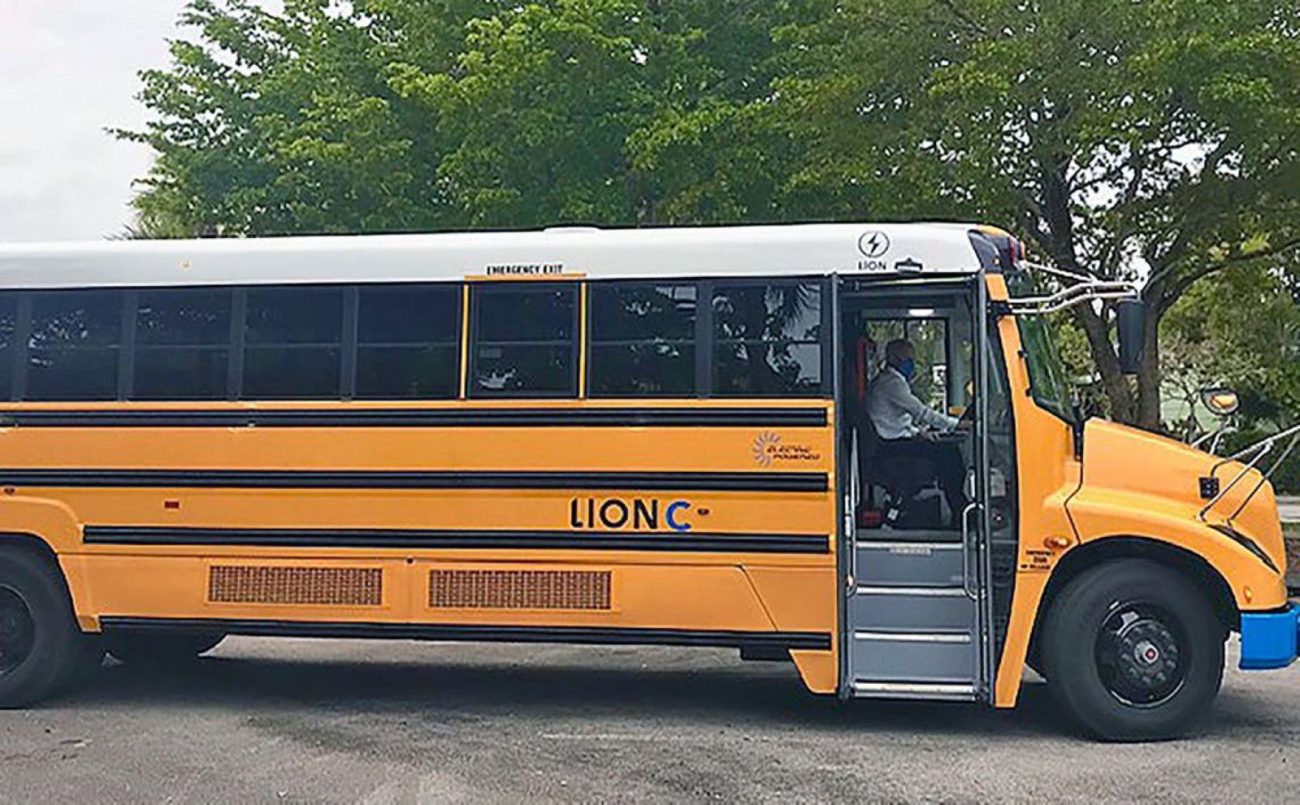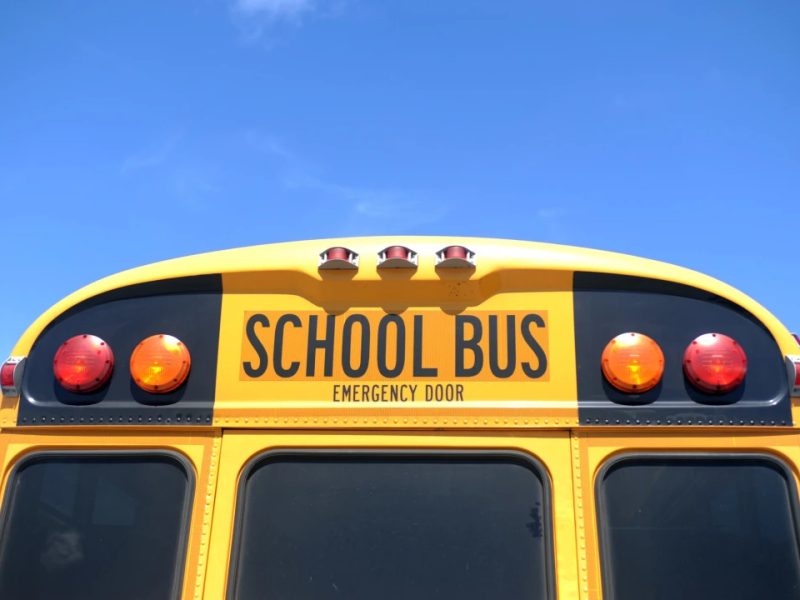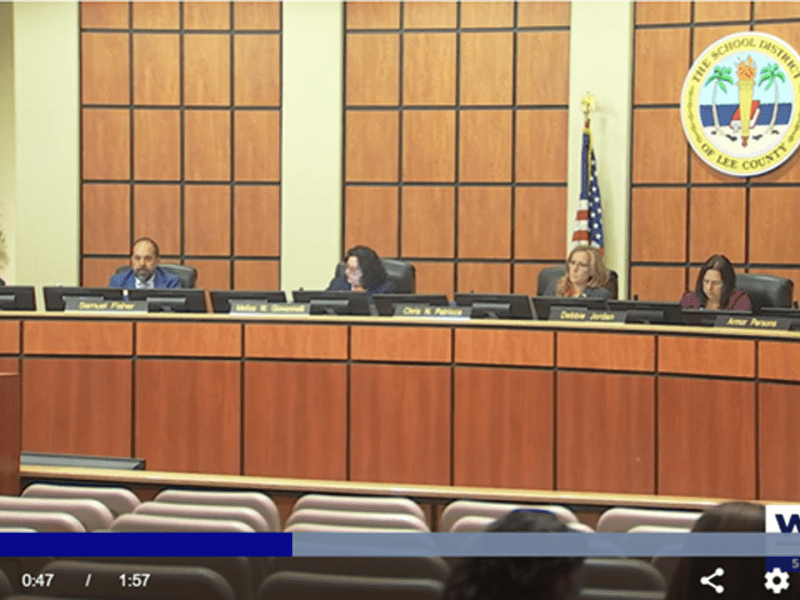The yellow school bus is going green as Miami-Dade starts transition to an electric fleet
Miami Herald | by Linda Robertson | January 15, 2021
A landmark decision by Miami-Dade County Public Schools to begin converting its noisy, pollutant-belching diesel buses into an electric fleet was driven by middle school student Holly Thorpe’s science fair project. Her investigation yielded even more alarming conclusions than she expected, showing that carbon dioxide fumes inside buses were 10 times higher than limits recommended by the Environmental Protection Agency.
A year after she presented her findings to school board members and urged them to switch to zero-emissions buses, the district is taking the first step toward cleaner, healthier transport.
Superintendent Alberto Carvalho told Thorpe at Wednesday night’s school board meeting that the district is applying for federal grant money from the $2.8 billion settlement fund generated by the Volkswagen “Emissionsgate” scandal, in which the carmaker rigged its diesel-powered vehicles to cheat on government emissions tests.
“We’re finally going to turn the yellow school bus green,” Thorpe said. “Transportation is the largest source of greenhouse gases. Electric school buses are essential for the health of students and drivers.”
The district’s application for a share of the $57 million allotted to Florida schools ready to invest in electric buses represents a victory for students and parents who have been pushing the school board to adopt measures promoting environmental sustainability. School board member Luisa Santos plans to draft a resolution modeled on one passed by the Los Angeles Unified School District committing to a conversion to 100 percent clean energy.
“Students know they will be faced with the dire consequences of climate change and they are the ones motivating the district to feel a sense of urgency and care about becoming the greenest, leanest, most innovative and most equitable school system it can be,” said Michele Drucker, parent, environmental chair of the Miami-Dade County PTSA Council and sustainability chair of the MAST Academy PTSA. She initiated the Green Champions program at MAST, which was named a U.S. Department of Education Green Ribbon School. “There is money available to cover initial capital costs. District administrators just need to change their mindset and accept the technology.”
During a demonstration drive Wednesday, students and parents raved about the ride on an electric bus manufactured by Lion Electric, a Quebec-based company that has 370 school buses operating in Canada and the United States.
“On a normal school bus you have to hold your breath, it’s dirty, loud, uncomfortable — nobody wants to ride the bus,” said Thomas Brulay, a MAST eleventh-grader and Green Champions member. “This ride felt completely different. It felt like progress.”
Brulay explained that the bus dropoff lane at MAST, covered by an overhang, is a congested, smoky, smelly area.
“We’ve put up ‘No Idle’ signs but no one seems to pay attention,” said Sam Grossman, a MAST freshman. “We have to keep speaking up to raise awareness.”
Gabriela McGrath-Moreira, a Coral Gables High student and Gables Earth club member, said students are discouraged from using buses as a transit option “because it’s so unpleasant and you have to yell to be heard,” so they end up driving or being driven to school instead, adding to the reliance on fossil fuels and emissions choking the planet.
“We’re growing up in a warming, polluted environment that is changing especially fast in Miami,” said Ellie Reyna, a MAST junior and co-president of her school’s Eclipse Club. “On the electric bus, you feel safer, like you’re not inhaling toxic fumes. It’s so much better for the drivers.”
The ride aboard the Lion bus around the neighborhood surrounding the Vizcaya Metrorail station was quiet, smooth and fume-free. The air-conditioned Lion C, one of three different models, has a 100-mile range off a battery that takes about six hours to completely recharge. To brake, the bus uses regenerative power as the driver takes his or her foot off the accelerator and the traction motor stops the bus.

MAST Academy student Holly Thorpe steps off a Lion C electric school bus after a clean, quiet demonstration ride in Miami. Thorpe’s science fair project showing hazardous emissions levels inside Miami-Dade Schools’ diesel buses spurred the district to apply for funding to convert to a fleet powered by renewable energy. LINDA ROBERTSON
“For the driver, it’s an improved experience not only in operating the bus but in monitoring the passengers because you can hear them, it’s less chaotic,” said driver Richard Lee, who is Lion’s director of U.S. bus sales. “Climate change is here and we’ve got to fix it. Will I see the day when everything is 100 percent electric? No, but my grandchildren’s future depends on it.”
Thorpe’s science project test of CO2 emissions from buses at MAST measured 5,000 parts per million inside the buses. In her report, she noted that the Environmental Protection Agency (EPA) lists 350 ppm as a healthy, normal outside level and 450 as an acceptable level while warning that adverse health effects can appear at the 1,000 level and are expected at 2,500 and up. Diesel fuel is a carcinogen that contributes to respiratory illnesses. Lung disease and asthma are major risks (and hearing loss from engine noise). She cited studies showing students perform better academically when they don’t ride diesel buses.
Thorpe and her sister Lilly did a quick test aboard the Lion bus and found a level of 2,000, “which is two and half times lower than on the diesel buses and probably lower than that if we weren’t in a parking area with Metro buses,” she said of the busy Vizcaya station lot.
Miami-Dade has a fleet of 1,060 school buses that transport 45,000 children daily via 840 routes. The EPA, which has awarded $39 million in rebates to replace 2,000 school buses over the past seven years, estimates that 95 percent of school buses still run on diesel, transporting 25 million children per day and driving 4 billion miles per year.
Electric school buses cost two to three times more than diesel buses, at about $230,000 each depending on the size and model. But the selling point is that they are cheaper over the long run with 80 percent lower costs for fuel and maintenance, roughly translating to 15-19 cents per mile for an electric bus vs. 87 cents per mile for diesel over the lifetime of the bus.
The Lion C is the equivalent of removing five cars from the road or 25 tons of greenhouse gasses from the atmosphere, Lion says. And, because school buses typically operate only during certain hours of the day and don’t need a large battery to cover more than 150 miles, they can be charged overnight at their garages and can also be recharged using surplus solar energy from the grid. During down times, like summer vacation, they can resupply energy back into the grid.
There are signs a transition is afoot: Blue Bird, the leading manufacturer of school buses in the U.S., has delivered 300 e-buses, primarily in California, and is ramping up production.
“Imagine a new image for the school bus,” said Jackie Kellogg, Key Biscayne native and parent of three. She encouraged the school board to “be green and be bold” at Wednesday’s meeting. “The end of the nasty bus ride that poisons you and makes you cough. The end of the grumpy driver yelling at everybody to quiet down and stop fighting. The end of sitting in the way back with the burnouts who used to pop open the rear hatch and cause the bus to pull over so they could jump out and skip class.
“Here in Miami we can set an example for clean transportation. We can say we put our students, drivers and community’s quality of life first.”

MAST Academy student Holly Thorpe, left, and her sister Lilly measure carbon dioxide levels inside an electric school bus. Thorpe’s science fair project showing hazardous emissions levels in Miami-Dade Schools’ diesel buses spurred the school board to seek funding to convert to an electric fleet. LINDA ROBERTSON
Featured image: The future for Miami-Dade County Public Schools’ diesel-powered school bus fleet could be an electric one. Here an electric Lion C bus takes a clean, quiet demonstration ride around a Miami neighborhood. The school board has applied for funding for zero-emission buses. LINDA ROBERTSON






